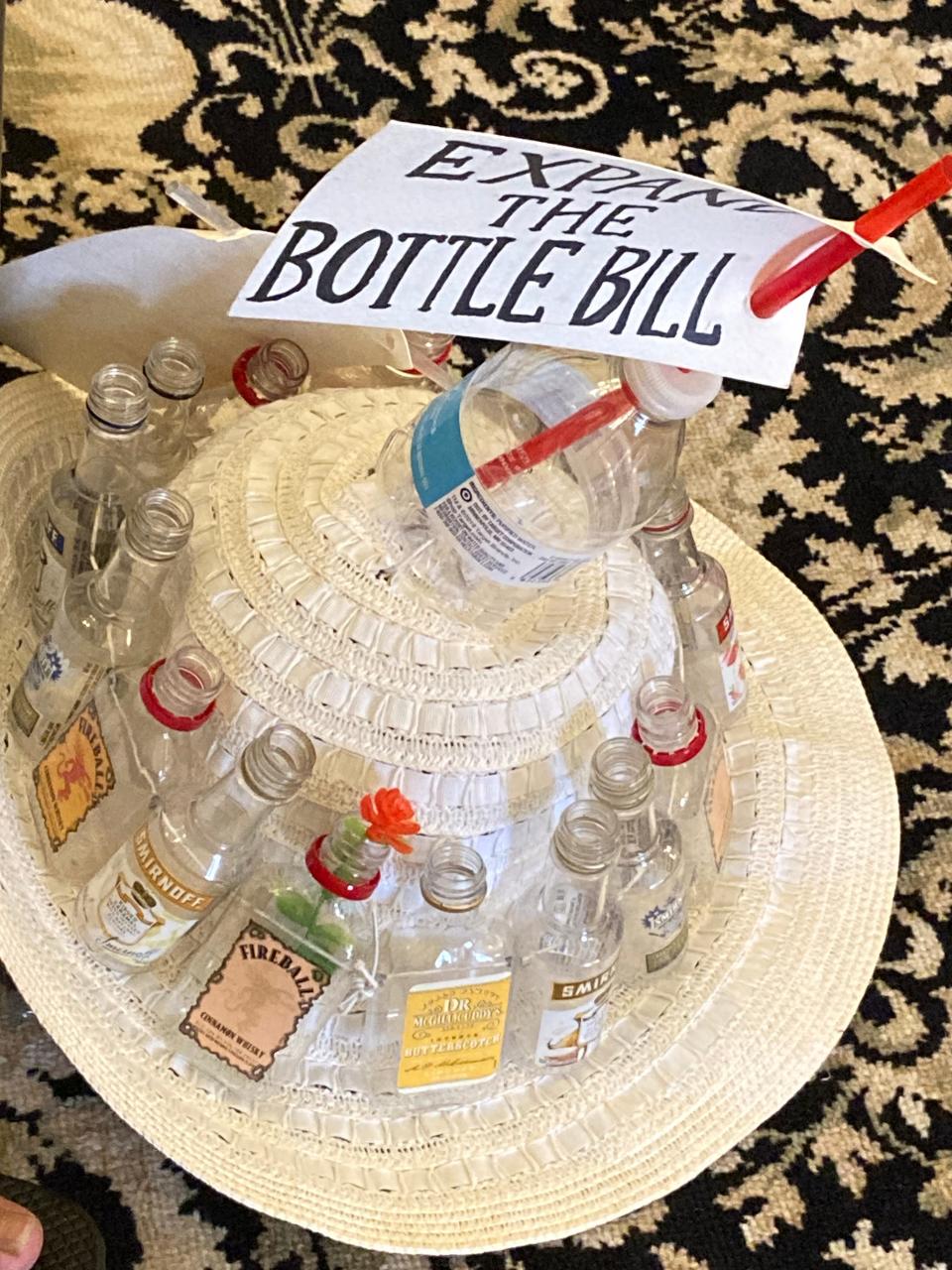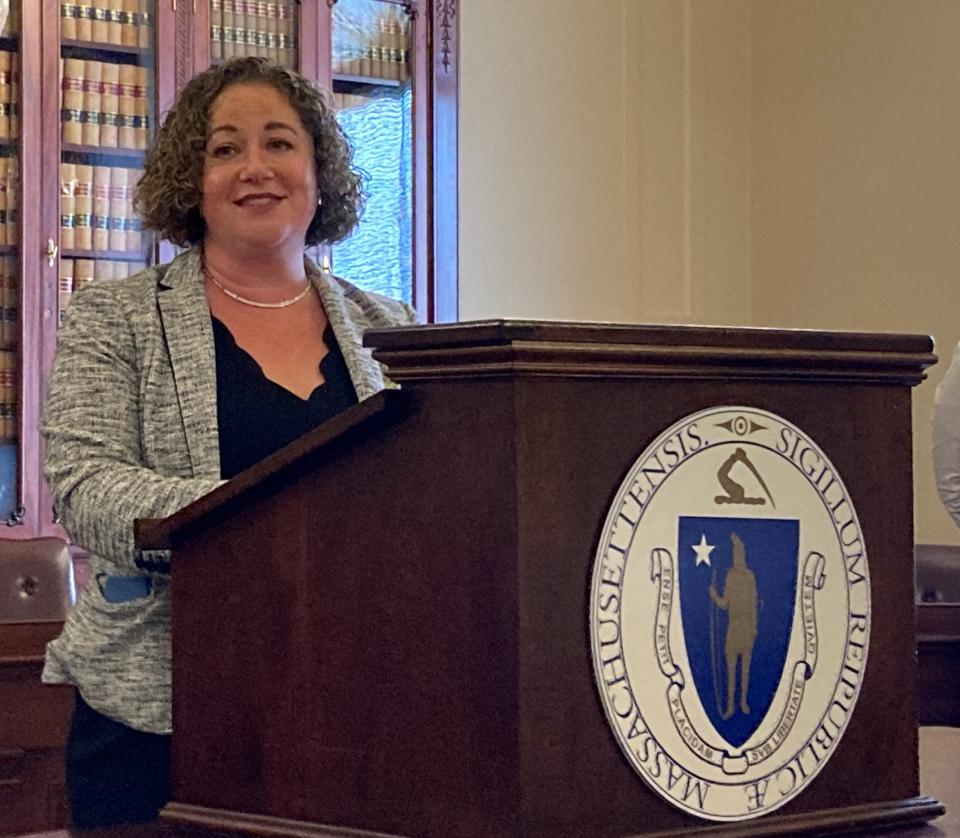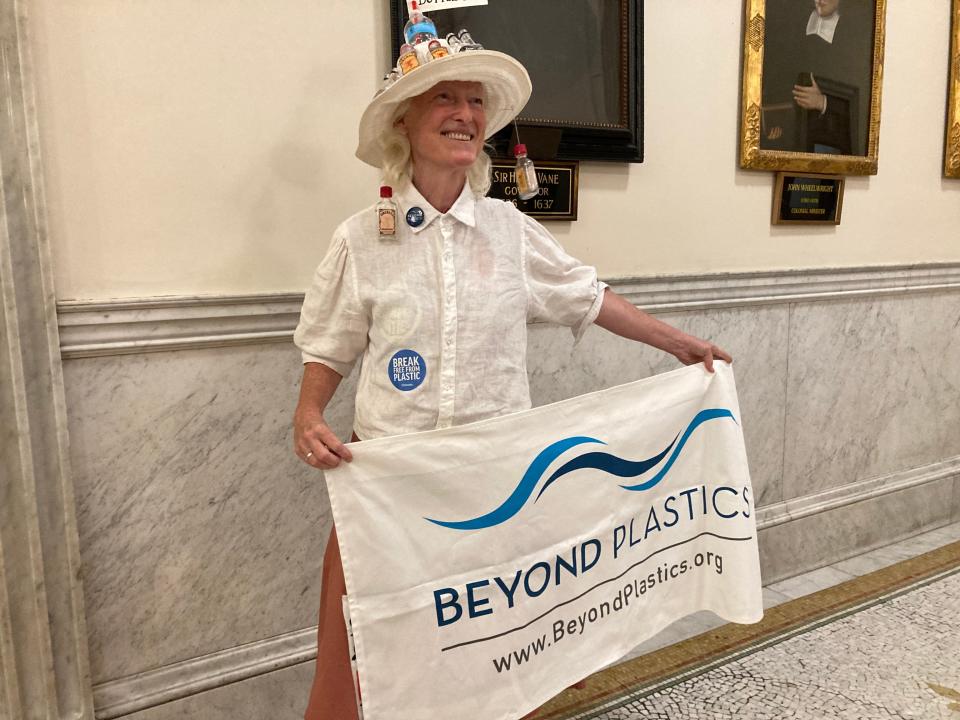State legislators, grass-roots orgs: Single-use plastic in Massachusetts 'gots to go'
Legislators, working with local and regional grass-roots coalitions, launched a campaign to address the proliferation of single-use plastics in Massachusetts.

“Single-use plastics are not easy to get rid of; they are convenient,” said Sen. Jason Lewis, D-Winchester. “I’m thrilled this day arrived.”
The group has set its sights on reducing the use of plastics in Massachusetts. Legislators have filed bills that range from updating the state’s bottle bill to banning the use of plastics as incinerator fuel. A modernized bottle bill would increase the deposit while also extending the type of containers subject to a deposit and not just carbonated beverages.
The coalition, with upwards of 16 members so far and working with strong advocates in the House and Senate, has a goal of making Massachusetts plastic free.
“This is a critical issue,” Lewis said.
Rep. Michelle Ciccolo, D-Lexington, organizer of the legislature’s Zero Waste Caucus, said she was thrilled to help launch the campaign to address the state’s plastic dependence. “It’s not easy to make policy changes.”
As she discussed the campaign, she noted recyclable plastics, and not all can be recycled, can only be repurposed seven times at most. Once used, food containers and bottles cannot be recycled into food-grade containers for reuse.
“Massachusetts incinerates 3 million tons of plastic a year; and 35% of our plastic is exported to other communities with less stringent laws,” Ciccolo said.

Sen. Becca Rausch, D-Needham, called the proliferation of plastic, and its pollution, a crisis “of our own making. We need to take steps now to decrease damage to the planet, to our own physical health and the environment.
“We need to limit the proliferation of single-use plastics,” Rausch said.
Single-use plastics include beverage containers like water bottles, plastic shopping bags, food containers and shipping materials and packaging, items destined for immediate disposal and a possible trip to the landfill.
“Call your legislator, call your friends, have them call their legislators,” Rausch suggested, adding that residents can request their representatives to sign up as sponsors of the bills already filed. “We need to address plastics this legislative session.”
Fossil fuel industry behind the proliferation of single-use plastics
Plastics, Rausch said, are a product of the fossil fuel industry.
In reviewing statistics on plastic disposal, Rausch said that once used, 32% of items end up in the environment, 40% are sent to landfills, 14% are recycled, while only 2% are made into something better than a plastic bottle or plastic bag.
“Plastic is mostly down-cycled,” Rausch said. “We cannot burn, bury or recycle our way out of this crisis; we need systemic change.”

Mara Shulman, of the Conservation Law Foundation, said one of the goals is to return responsibility for ethical disposal of plastics to the manufacturers.
“The people who make plastics need to reduce the toxicity, increase the recyclability and decrease the amount of plastic in packaging,” Shulman said. Merely burning or reprocessing plastic is not acceptable.
A call to increase the required container deposit could create more incentives for Massachusetts residents to redeem their coins. But the ultimate goal, especially for plastic, is to refill and reuse containers.
Convenience reason for proliferation of single-use plastics
“The single-use culture is so convenient,” Shulman said.
Massachusetts has started to address its solid waste crisis creating community diversion programs for textiles, mattresses, compost and plastic bags. It's time, agreed the legislators and activists, for the state to step up and address the issue of single-use plastics.
“We all take pride in Massachusetts being a global leader in universal health care, civil rights, climate change, but to be honest, it lags behind other states in addressing solid waste issues,” Lewis said. “It’s time to take action.”
This article originally appeared on Telegram & Gazette: Bills filed could increase container deposits, bar burning plastic

